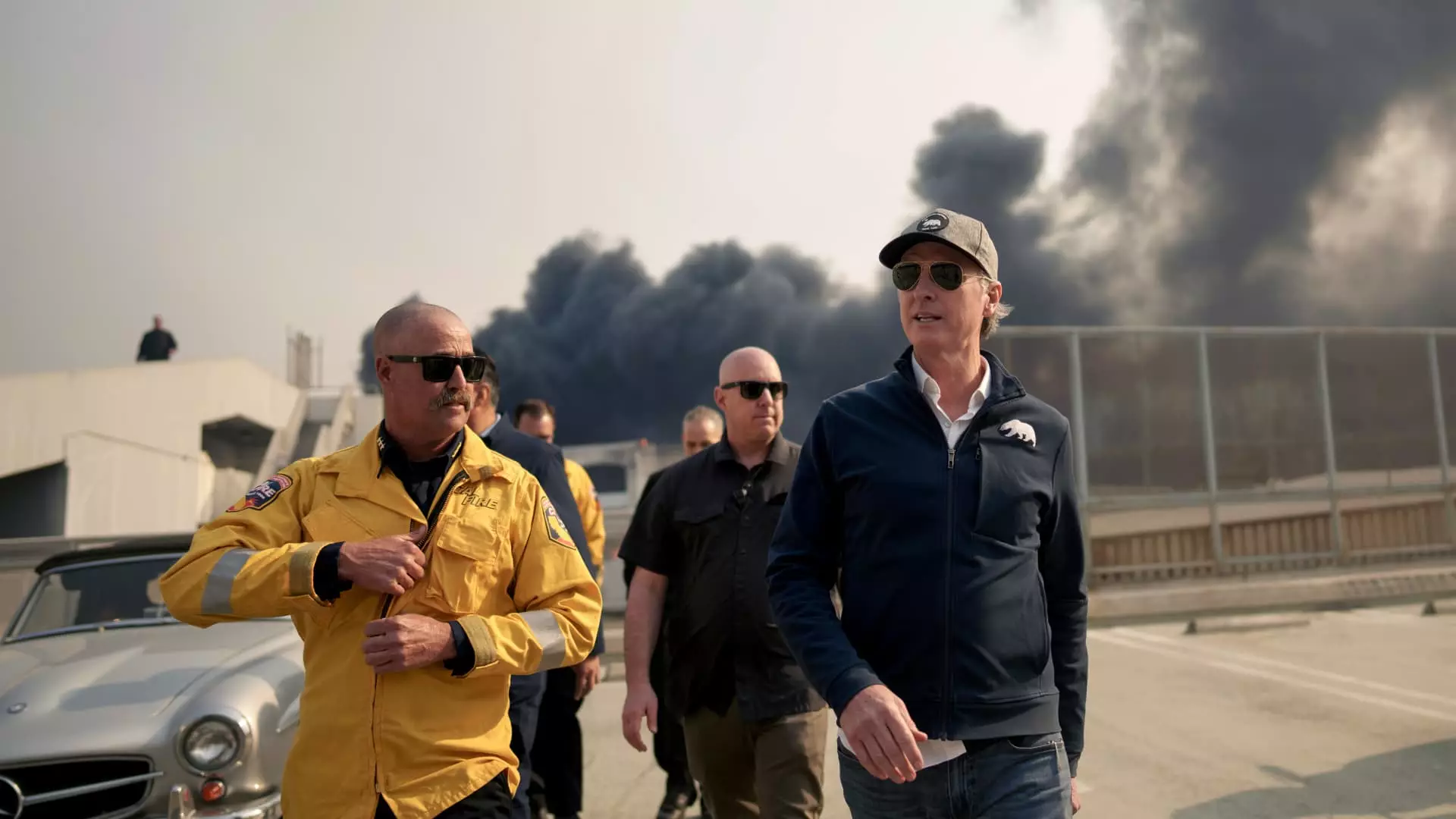In the aftermath of California’s devastating wildfires, a fierce political clash has erupted between California Governor Gavin Newsom and President-elect Donald Trump. As fires ravaged the greater Los Angeles area, claiming at least 16 lives, the rhetoric escalated to unprecedented levels, revealing deeper tensions regarding disaster management, climate change, and political accountability.
During an interview with NBC News’ “Meet the Press,” Governor Newsom heavily criticized Trump’s responses to the wildfires, particularly highlighting the president-elect’s mischaracterizations and misinformation. Trump, utilizing his platform on Truth Social, directed several accusatory statements towards Newsom, President Joe Biden, and the mayor of Los Angeles, Karen Bass. Central to Trump’s narrative was the assertion that Newsom had undermined efforts to facilitate water flow from Northern to Southern California, which he claimed would have alleviated the fire situation.
Trump’s statement, which flamboyantly referred to Newsom as “Governor Gavin Newscum,” claimed that Newsom prioritized a “worthless fish” over California citizens. Such inflammatory rhetoric not only underscored Trump’s combative style but also reflected a tendency to sidestep substantive policy discussions in favor of personal jabs. Newsom, in his rebuttal, dismissed Trump’s claims as uninformed, asserting that the connection made between environmental regulations and the wildfires was “incomprehensible” and showed a lack of understanding of California’s nuanced water policy.
The wildfires engulfing California are not merely a result of local governance shortcomings or managerial incompetence; they are emblematic of broader challenges linked to climate change. The state has witnessed increasing wildfire intensity due to prolonged droughts, rising temperatures, and inadequate resources for forest management. These factors converge to create a perfect storm for wildfire outbreaks, rendering the simplistic blame game played by Trump even more problematic and harmful. As Newsom pointed out, the reality on the ground calls for critical cooperation and support rather than scapegoating and political indifference.
While Newsom has extended an invitation to Trump to visit California and witness the devastating aftermath firsthand, the reaction, or lack thereof, raises questions about the president-elect’s commitment to addressing the plight of those affected. Inviting Trump in good faith highlights Newsom’s desire for bipartisan collaboration and disaster relief but also emphasizes the urgency of the situation, hinting at concern over future federal disaster aid, particularly given Trump’s history of withholding assistance based on political grievances.
Governors and state leaders across the country are intimately aware of Trump’s past decisions to delay or deny federal aid to states governed by those he perceives as political adversaries. Newsom’s concerns reflect a trend that not only signals political frustration but also underscores a potential humanitarian crisis. As states grapple with the fallout from natural disasters, federal aid is not merely a matter of financial support, but rather a lifeline that assists communities in rebuilding their lives.
The climate crisis demands a united front among political leaders, transcending party lines and personal grievances. In a time of such dire need, the perpetual political warfare, as seen in Trump’s rhetoric, only exacerbates the vulnerability of communities reeling from disaster. If true change is to be fostered, accountability must extend beyond finger-pointing to create a constructive discourse focused on relief efforts and effective policy measures.
The ongoing wildfires and the surrounding political drama encapsulate a moment in which leadership is critically needed. As the aftermath of these wildfires continues to unfold, it is imperative for political figures to step away from divisive tactics and instead prioritize the real issues at hand. Newsom’s appeal to Trump to engage with affected communities signals hope for cooperation, even amid an environment fraught with tension. Ultimately, this situation emphasizes the urgent need for collective action in the face of climate change, urging leaders to rise above partisanship and acknowledge the shared responsibility of addressing environmental challenges that threaten lives and livelihoods alike.


Leave a Reply